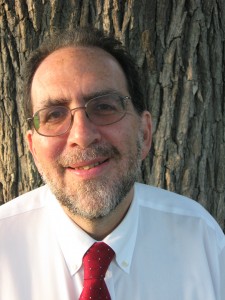OXFORD, Miss. – Pulitzer Prize-winning reporter and Bloomberg News managing editor Jonathan Kaufman will discuss “African-Americans and Jews in the Age of Obama” on the University of Mississippi campus Thursday (Feb. 7).
The lecture, part of a yearlong series titled “Intertwining Legacies: Jews and African-Americans in the Deep South,” will take place in the Overby Center Auditorium at 5:30 p.m. and is free and open to the public. A reception will follow.
Willa Johnson, UM associate professor of sociology and Cummings Foundation fellow for the U.S. Holocaust Memorial and Museum, said the lecture will focus on the evolving relationship between African-Americans and Jews, as well as how it has changed since President Barack Obama has taken office.
“Historically, African-Americans and Jews have had a mixed relationship,” said Johnson. “During the years of civil rights, there were many Jews who took the side of African-Americans, but like many relationships, there have been ups and downs. Now, Mr. Kaufman is examining the Obama administration as a moment in history that African-Americans and Jews can recapture that past relationship.”
Kaufman is author of National Jewish Book Award winner “Broken Alliance: The Turbulent Times Between Blacks and Jews in America” and “A Hole in the Heart of the World: Being Jewish in Eastern Europe.” He oversees coverage of stories on education, corporate corruption, science, health, sports and multinationals at Bloomberg News. He has also worked as deputy page one editor and China bureau chief at The Wall Street Journal and as Berlin bureau chief for The Boston Globe.
Kaufman’s lecture is the third in the “Intertwining Legacies” series, hosted by the University of Mississippi Critical Race Studies Group. The program was made possible by the Legacy Heritage Jewish Studies Project, directed by the Association for Jewish Studies. Support for the Legacy Heritage Jewish Studies Project is provided by the Legacy Heritage Fund Ltd.
“It is my hope that the ‘Intertwining Legacies’ lecture series will help us to better deal with prejudice and encourage a greater dialogue about racism, anti-Semitism and all other forms of racial and religious prejudice on the campus,” Johnson said. “I hope that students of all races and creeds will come to see the benefits of learning about groups other than the ones they represent.”
In September, W. David Nelson, a scholar of Rabbinic literature and the Hebrew Bible at Groton School in Massachusetts, kicked off the speaker series with his lecture “Say Again! Race, Religion and Realities of Reading the Bible.” In October, Sander L. Gilman, distinguished professor of liberal arts and sciences and professor of psychiatry at Emory University, spoke on race and mental illness. The final lecture of the series will take place this spring.
